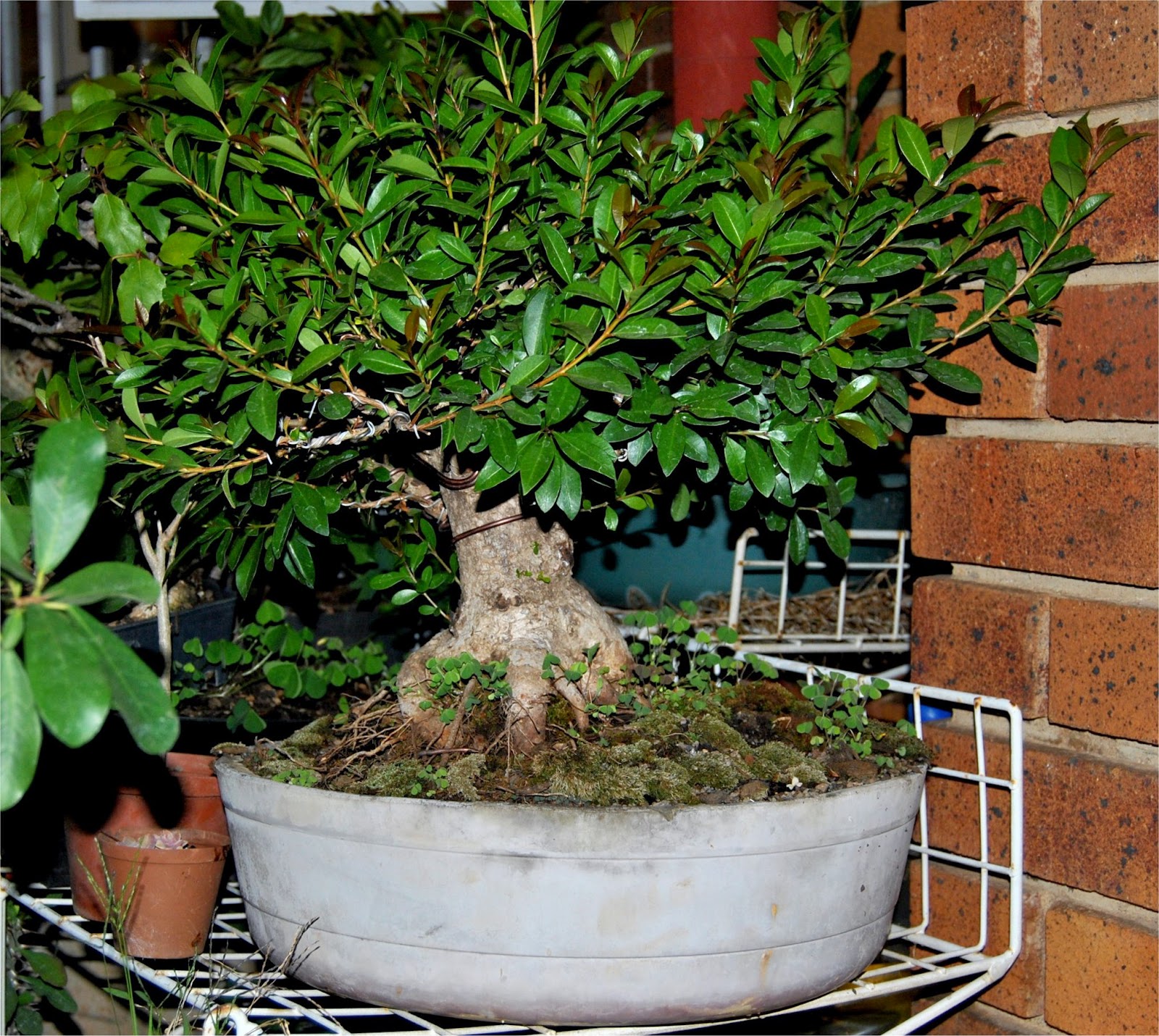A picture of the mother plant and layered part (Autumn 2012):
I removed the air layer in October 2012. Here is a picture of the air layer part of the tree.
Here is the bottom part just after the air layer was removed:
October 2012:
Here one can see the wide nebari and the beautiful bark of the species. The red indicates the possible new leader then.
I entered the tree in a competition in August 2013:
http://ofbonsai.org/contest/ryuga-2013/entry-eugenia-myrtifolia-brush-cherry-south-africa



After the cut back the tree budded out everywhere and I let the tree grow out freely to recover from the heavy cut back.
The pics show the tree after I have selected potential new growths. All growths growing downward, directly upward, growths in bends, growths coming from the same bud and growths that were positioned that would not add to the design, were removed.
I felt better about the potential of the tree then because I could picture the final outcome of the tree in my head at that stage.
The growth in the upper part of the crown will have been reduced in the first week of December to preventing them from becoming too thick. The lower growths were left alone until the second week of January before being reduced. The tree would then be defoliated and wired completely.
I was still going for an old tree in the broom style where the branches are styled in the naturalistic branch structure.





From the last picture I balanced the growth in the upper half of the tree with the growth in the lower branches. The main purpose was to get some twiggy growth. This is the tree in late March just before I defoliated the tree, the tree defoliated, the tree wired and the branches and twigs styled. (The first three pictures.)
I tried my best to get as much movement possible in the twigs to portray the theme of an old tree.
At that stage I was very happy with the outcome of the tree.
Having only a few weeks left till the final pics I gave the tree as much sun and heat as possible to get the buds going. The tree reacted well.
14 April 2014:
I am very happy with the outcome of the tree. The tree has not disappointed me in what I have planned right from the beginning for it – when finished the tree will portray an old tree with one crown but with pads within the crown flowing into each other as one will found on old natural trees.
From here I am going to let the tree grow out a bit again to the 4th leave stage before cutting it back again. After that I will have enough twiggy growth to fill out the outline of the crown. The crown will also be a little bigger then, but wider than high. With the defoliation in early summer, the leaves will reduce tremendously – getting them at about 3mm wide and 5mm long is possible with the species using the correct technique. The smaller roots of the nebari will fatten over time adding more character to the base. Some carving, like a hollow, may also be in the future of the tree. Over time the front of the tree will probably change – lots of possibilities in its future.
When ready the tree will be planted in a light blue and brown oval pot with a pronounced lip and feet.
The tree today at the beginning of spring(August 2014):
The tree is still growing strong. I am going to fertilize it heavily over the next two weeks and then I will do the cut back to two leaves again.
September 2014:
(Before cut back and defoliation.)
After the cut back and defoliation:

















